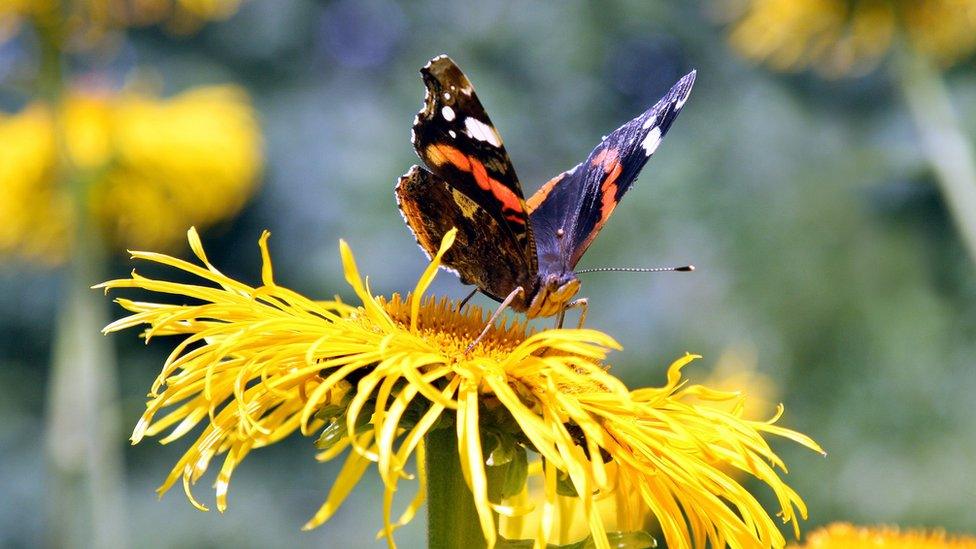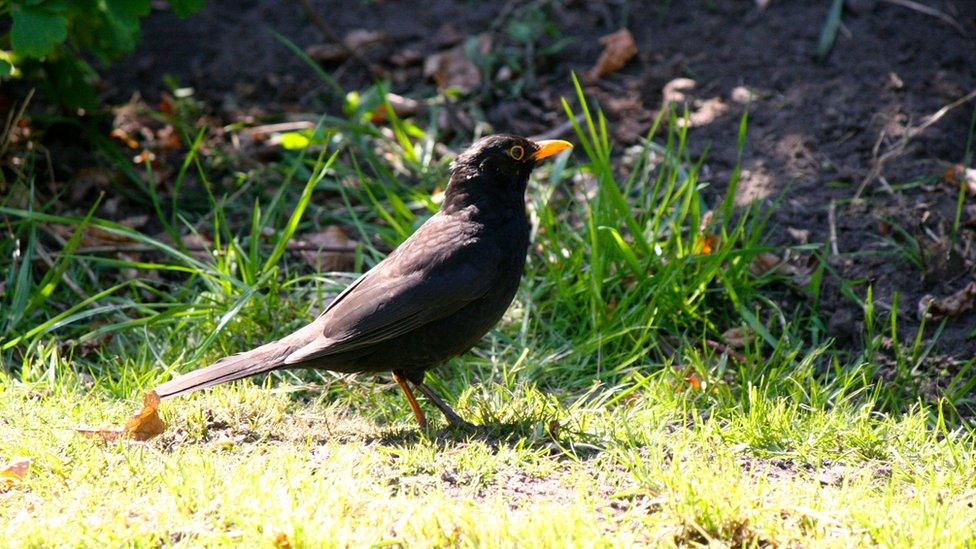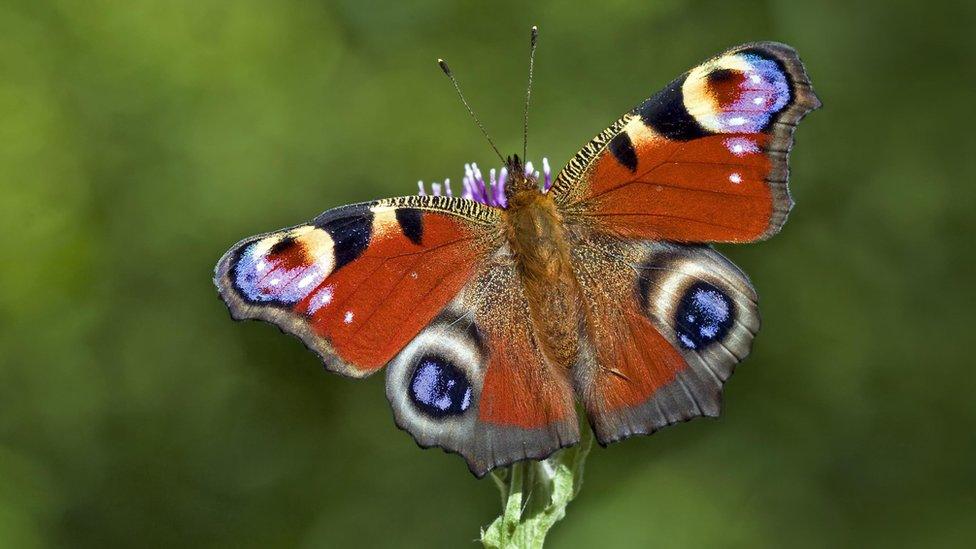Warm weather 'forces wildlife into early spring action'
- Published
- comments

Species like the Red Admiral have been unsettled by warmer winters
Warmer winters and increasingly erratic weather is causing confusion among Britain's wildlife, putting some at risk, the Woodland Trust has warned., external
The trust said that "lost" winters are causing species such as butterflies and blackbirds to nest earlier than normal.
An analysis of 50 spring events found that all but one was early in 2019.
The data comes from the annual Nature Calendar, which asks members of the public to record the signs of changing seasons.
The Woodland Trust, which runs the calendar, warned that many species are beginning to lose their seasonal cues as winters warm and the distinction between seasons blurs. The news comes amidst a large increase in global temperatures over the past decade.
The latest data found that seasonal shifts have caused some birds to start breeding too late, meaning they cannot make the most of vital food sources. Meanwhile, other animals have been leaving hibernation too soon, only to be hit by plunging temperatures and erratic weather conditions, the charity said.

Blackbirds have been spotted nesting earlier than usual
Lorienne Whittle, Nature's Calendar citizen science officer at the Woodland Trust, stressed the danger of shifting seasons on the habitats of Britain's wildlife: "It seems that last year we almost lost winter as a season - it was much milder and our data shows wildlife is responding, potentially putting many at risk."
"Our records are showing random events such as frogspawn arriving far earlier than expected, possibly to be wiped out when a late cold snap occurs."
She noted that some species and plants have dealt well with the blurring seasons. "It appears that some species are able to adapt to the advancing spring better than others. Oak trees respond by producing their first leaves earlier and caterpillars seem to be keeping pace."
"But blue tits, great tits and pied flycatchers are struggling to react in time for their chicks to take advantage of the peak amount of caterpillars, the food source on which they depend."
Among the surprising sightings recorded by the trust were two reports of peacock butterflies on the wing in Kent and Cornwall in December, while a red admiral was spotted in the Channel Islands. The butterflies were thought to have been woken early due to the mild weather in the south of England.

Peacock butterflies have been seen in Kent in December
In other parts of the UK, active newts were recorded in Cheshire in December and a blackbird was spotted building a nest at the beginning of January.
The breeding season for blackbirds usually begins in March and usually lasts until July, while great crested newts spend winter hibernating underground and are usually seen from March. They breed in ponds during the spring and spend the majority of the year in woodlands, hedgerows, marshes and grassland.
- Published3 December 2019
